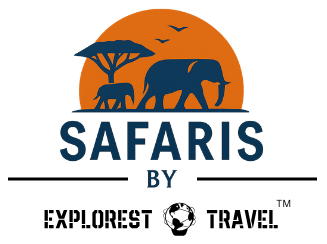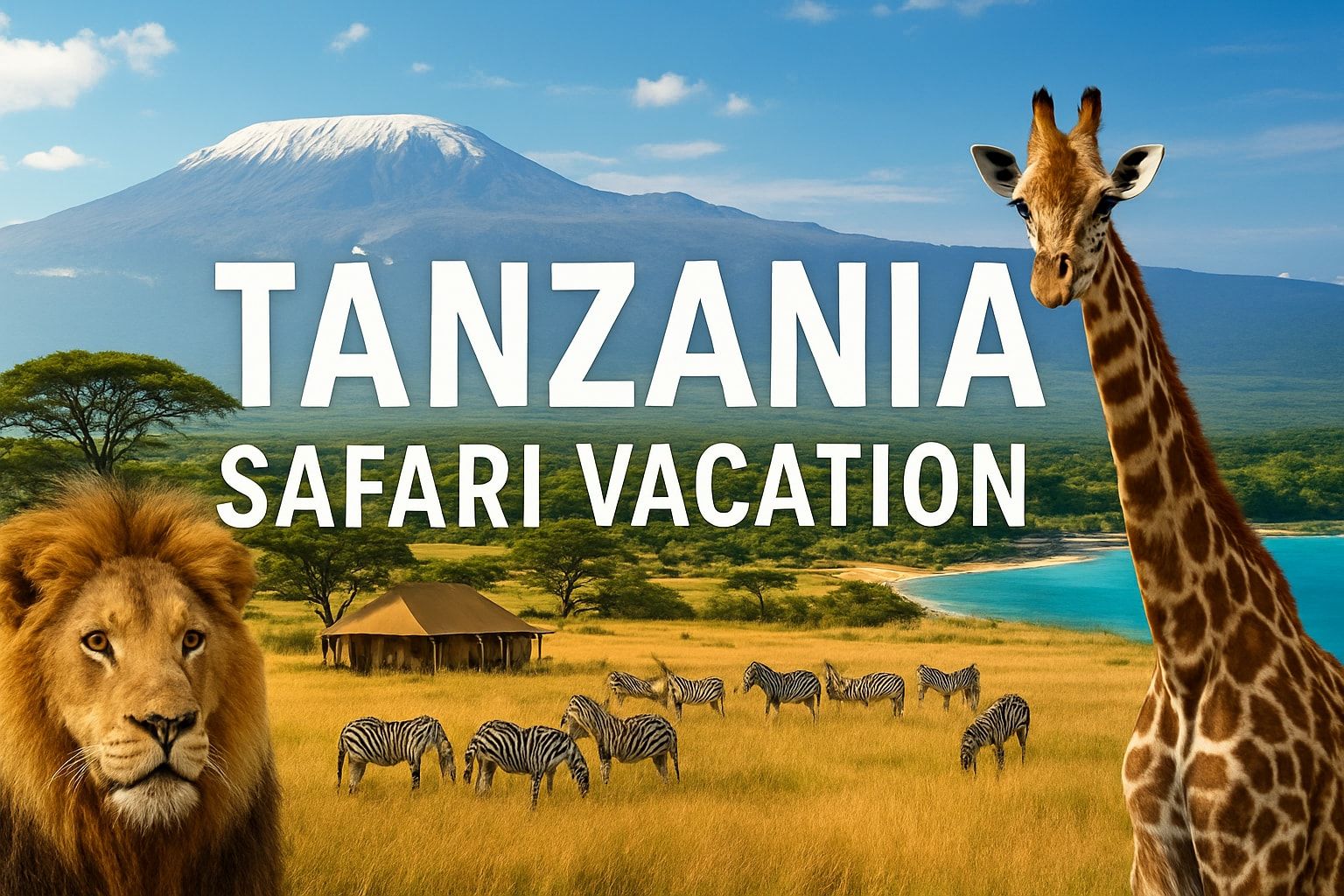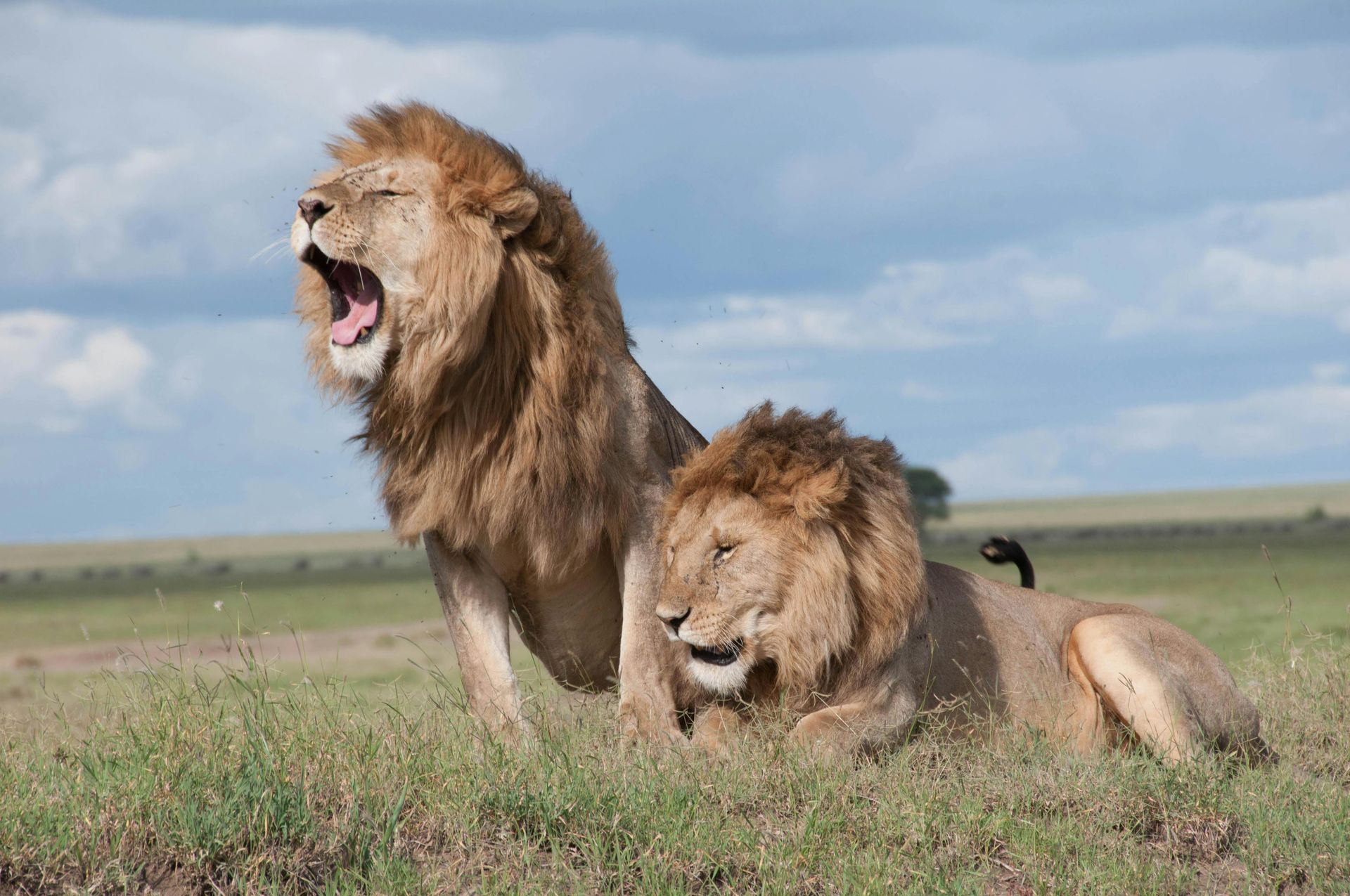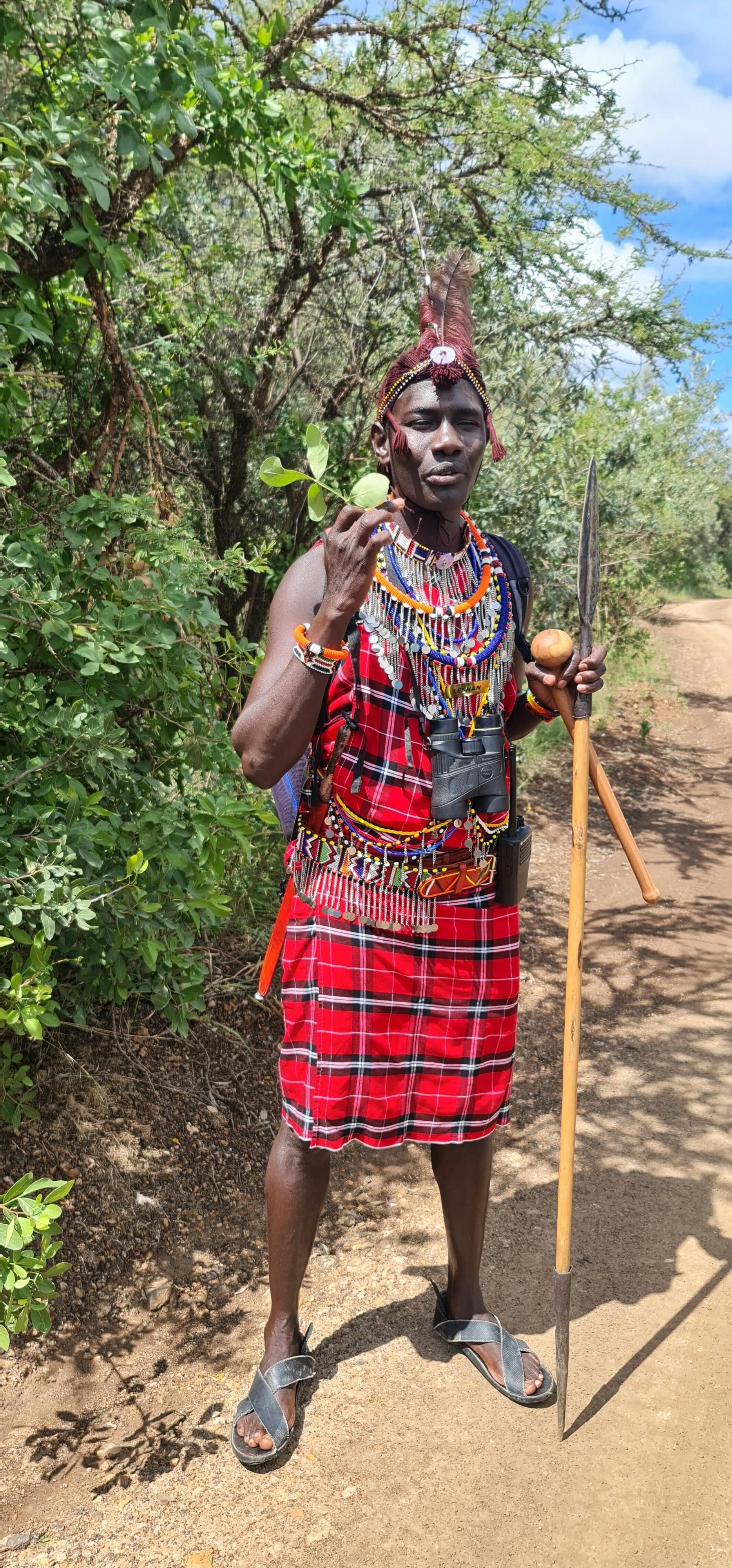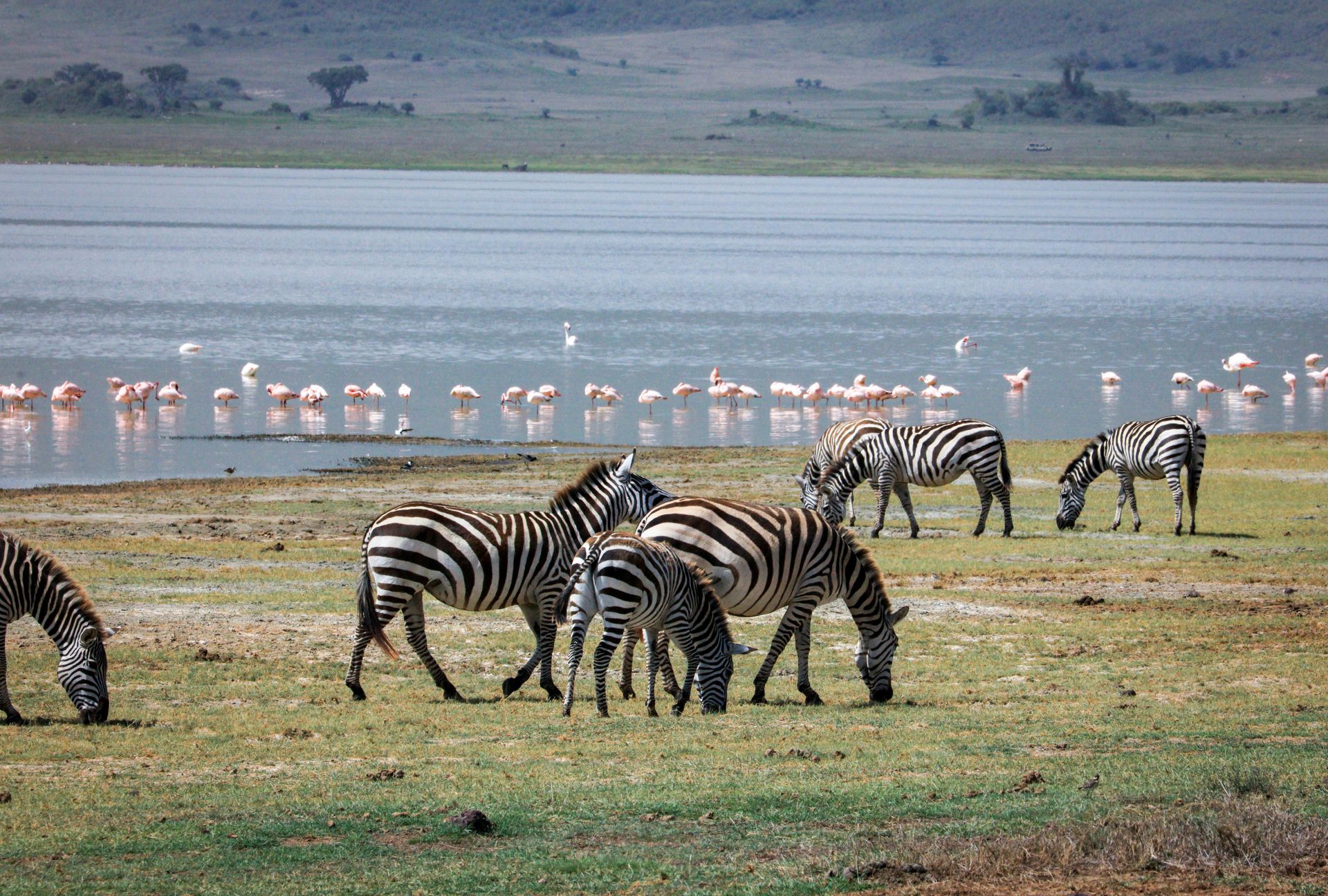
Book a Safari: The Essential Guide for 2025 Adventurers
Timothy Sikora • November 16, 2025
Imagine the thrill of hearing a lion’s roar as the first light touches the savannah, or the excitement of tracking elephants through ancient forests. If you have ever wanted to book a safari, 2025 is the year to make that dream a reality.
This essential guide is designed to help every adventurer confidently book a safari that matches their wildest aspirations. You will find expert advice for seamless planning, ethical choices, and unforgettable experiences.
Discover the best destinations, ideal booking timelines, smart budgeting tips, and safety essentials. Let this step-by-step resource inspire you to take action and embark on your perfect safari journey.
Why 2025 Is the Perfect Year to Book a Safari
Picture yourself on the plains as the morning sun rises, witnessing wildlife awaken in their natural habitat. The year 2025 brings a wave of new opportunities, making it the ideal moment to book a safari. With evolving trends, enhanced infrastructure, deeper conservation efforts, and exclusive events, 2025 stands out as the year to embark on a life-changing adventure.

Emerging Safari Trends for 2025
The safari landscape is evolving rapidly, and 2025 is at the forefront of these changes. There is a noticeable surge in post-pandemic adventure travel, with more people seeking the freedom of open spaces and unique wildlife encounters. New luxury lodges and eco-camps are opening across Africa, offering travelers fresh ways to experience the wild in comfort.
A growing number of digital nomads are choosing to book a safari, blending remote work with immersive nature escapes. Small-group and private safari packages are now in high demand, providing exclusivity and personalized service. For a deeper dive into these developments, explore the Future of African Safaris: 2025–2026 Trends to understand why 2025 is a pivotal year for safari travel.
Conservation & Sustainability Initiatives
Sustainability is transforming the way people book a safari. In 2025, more operators are expanding community-based wildlife conservation programs, directly benefiting both local people and the animals they protect. Carbon offsetting and plastic-free safari operations are becoming the norm, reflecting a shift toward responsible tourism.
Statistics show that 65% of safari operators in 2024 now hold sustainability certifications. This commitment has a measurable impact on wildlife populations and the economic health of surrounding communities. Booking a safari in 2025 means contributing to these vital initiatives, ensuring your journey leaves a positive legacy.
Accessibility & Improved Infrastructure
Traveling to Africa is more convenient than ever, making 2025 an excellent year to book a safari. Major hubs like Nairobi and Johannesburg have seen improved air connectivity, with more direct international flights and upgraded regional airports. Enhanced road networks and internal transfers make it easier to reach remote reserves quickly and comfortably.
Visa processes have also been streamlined, with popular safari countries introducing visa-on-arrival and e-visa options. For example, Kenya’s e-visa system now reduces processing time by 70%. These advancements mean you can book a safari with greater confidence and minimal logistical hurdles.
Unique 2025 Safari Events and Experiences
The year 2025 promises exceptional wildlife spectacles and cultural events. Iconic migrations, such as those in the Serengeti and Masai Mara, reach their dramatic peak, offering unmatched opportunities for wildlife viewing. Special conservation events and cultural festivals are scheduled throughout the year, providing deeper engagement with local traditions.
New experiences like immersive night safaris and guided walking expeditions are being introduced, allowing travelers to book a safari that goes beyond the ordinary. Botswana’s zebra migration, for instance, is featured prominently in 2025 travel calendars, making this year one of the most exciting times to witness Africa’s natural wonders.
Step-by-Step Guide to Booking Your 2025 Safari
Embarking on a safari is a thrilling journey, but knowing how to book a safari with confidence makes all the difference. This step-by-step guide ensures you cover every essential detail, from clarifying your travel goals to arranging logistics. Let’s explore each stage so you can transform your safari dreams into reality.

Step 1: Define Your Safari Goals and Preferences
Before you book a safari, clarify your motivations and expectations. Are you seeking heart-pounding adventure, indulgent luxury, or a blend of both? Consider your priorities—do you want to see the Big Five, focus on birdwatching, or immerse yourself in local culture?
Traveling with family? Look for malaria-free zones in South Africa to ensure a safe and comfortable experience. Solo travelers might prioritize group camaraderie or private guiding. Think about your interests, such as photography, and any special needs or requests. Defining your goals early helps tailor the perfect trip when you book a safari.
Step 2: Choose the Right Destination
Selecting the ideal location is crucial when you book a safari. Africa offers diverse experiences—from Kenya’s Great Migration to Rwanda’s gorilla trekking. Each country has unique highlights: Botswana’s Okavango Delta, Namibia’s deserts, Tanzania’s Serengeti, and Uganda’s rainforests.
Kenya and Tanzania remain top choices, accounting for 60% of first-time bookings. Your preferred wildlife, landscape, and cultural interests should guide your decision. For tailored advice on where and when to start your journey, refer to How to Choose the Perfect Starting Point.
Step 3: Select the Best Time to Go
Timing is everything when you book a safari. Wildlife sightings and weather conditions vary by region and season. In East Africa, June to October is peak season for the Great Migration, while Southern Africa’s prime months are May to September.
Travel during the shoulder or green season for fewer crowds and lower prices, though some wildlife may be harder to spot. Consider migration patterns and events, like Botswana’s zebra migration or calving seasons. By researching peak, shoulder, and off-peak periods, you can book a safari that matches your wildlife and climate preferences.
Step 4: Decide on Safari Type and Accommodation
The type of safari and accommodation you choose shapes your entire experience. Options include mobile tented camps, luxury lodges, private villas, and self-drive adventures. Each comes with unique advantages and limitations.
Luxury tented camps provide exclusive wildlife viewing and comfort, while mobile camps offer close-to-nature immersion. Private villas are ideal for families or groups seeking privacy. Self-drive safaris grant flexibility but require more planning. When you book a safari, match your accommodation style to your comfort, adventure level, and budget.
Step 5: Set Your Budget and Understand Costs
Budgeting is a key step as you book a safari. Prices range from $300 to over $2,000 per person per night, depending on season, group size, and accommodation type. Understand what is included—park fees, guiding, meals, and transfers—versus what is extra.
Below is a quick reference table:
| Cost Factor | Typical Range | Inclusions |
|---|---|---|
| Per Person/Night | $300 – $2,000+ | Lodging, meals, game drives |
| 10-Day Safari Avg. | $7,500 (2024) | Most essentials |
| Exclusions | Flights, tips, extras | Not always included |
Careful planning helps you book a safari with no financial surprises.
Step 6: Book with Reputable Operators or Specialists
Choosing a trustworthy operator is vital when you book a safari. Look for companies licensed by national tourism boards and verified by client reviews. Top-rated operators often boast 95% satisfaction rates and adhere to strict safety and sustainability standards.
Vet potential companies by checking certifications, reading client testimonials, and evaluating their conservation efforts. A reputable operator ensures your journey is smooth, ethical, and memorable. Booking with a specialist also offers access to exclusive experiences and expert guidance.
Step 7: Secure Flights and Travel Logistics
Finalize your plans by arranging flights and transfers. Book a safari well in advance to secure the best international and domestic airfares. Many safari destinations offer direct flights from major cities, such as Nairobi and Johannesburg, making travel more accessible.
Coordinate airport pickups, internal bush flights, and luggage logistics. Pay attention to layover times, baggage restrictions, and transfer arrangements. Early planning guarantees a seamless journey from home to your safari camp and back.
Essential Travel Requirements and Preparation
Embarking on a safari in 2025 involves careful planning to ensure a smooth and rewarding adventure. Before you book a safari, understanding the key travel requirements and making informed preparations is essential. From entry documents to health precautions, smart packing, and safety protocols, each step plays a vital role in shaping your experience. This section walks through the must-have details so you can confidently book a safari and focus on the excitement ahead.

Passport, Visa, and Entry Requirements
Before you book a safari, check that your passport is valid for at least six months beyond your travel dates. Most safari destinations require this, and some also request at least two blank pages for entry stamps. Research visa requirements for your chosen country—options include e-visas, visa-on-arrival, or pre-approved visas. For travelers exploring multiple countries, Rwanda’s East Africa Tourist Visa is a convenient choice, providing access to Rwanda, Kenya, and Uganda with a single document. Confirm all requirements and apply early to avoid last-minute surprises when you book a safari.
Health, Vaccinations, and Travel Insurance
Health preparation is critical when you book a safari. Most African countries require proof of yellow fever vaccination, especially if arriving from an endemic country. Additional recommended vaccines include hepatitis A and B, typhoid, and tetanus. Malaria prevention is essential; consult your doctor about suitable medication and follow mosquito avoidance measures. Comprehensive travel insurance is non-negotiable—ensure it covers medical emergencies and evacuation. Many responsible operators, like those highlighted in 5 Ways a Safari with Explorest Travel Supports Conservation , also support health and safety for both travelers and communities. Book a safari with peace of mind.
Packing List: What to Bring (and What to Leave)
Packing efficiently makes a difference when you book a safari. Choose lightweight, neutral-colored clothing for comfort, sun protection, and to blend into the environment. Essentials include a wide-brimmed hat, sunglasses, sunscreen, and sturdy walking shoes. Bring binoculars and a camera for wildlife viewing, plus adapters for charging electronics. Most bush flights have strict luggage limits—typically 15kg in soft-sided bags—so pack only what you need. Leave bright colors and camouflage at home, as both can attract unwanted attention or are restricted. Careful packing ensures a hassle-free experience as you book a safari.
Money Matters: Currency, Payments, and Tipping
Understanding local money practices is key as you book a safari. Research the primary currency for your destination, such as the Kenyan Shilling, Tanzanian Shilling, or South African Rand. Credit cards are accepted in many lodges, but remote camps may require cash for tips and small purchases. ATMs are available in major cities, but not in the bush. Tipping is customary: guides, drivers, and camp staff often rely on gratuities as part of their income. Familiarize yourself with local expectations before you book a safari to ensure positive interactions and smooth transactions.
Staying Connected: Communication and Internet
Staying connected is increasingly easy when you book a safari, though remote areas may have limited coverage. Many lodges and camps now offer Wi-Fi, sometimes via satellite, especially in luxury settings. SIM cards are widely available at airports and city shops, providing affordable data for calls and navigation. Consider downloading offline maps and translation apps before departure. Check with your operator about coverage in specific camps. Being prepared allows you to share experiences with friends and family or handle emergencies quickly. Reliable communication adds another layer of confidence as you book a safari.
Safety and Security Tips for Safari Travelers
Safety is paramount when you book a safari. Always follow your guide’s instructions, especially around wildlife and in camp. Respect all posted rules, and never wander alone after dark. Safeguard valuables by using hotel safes or secure bags, and avoid displaying expensive items in public. Research emergency contacts, such as embassy numbers and local authorities, before your trip. Staying alert and informed helps prevent common issues, so you can focus on the adventure. Prioritizing safety ensures every moment after you book a safari is spent enjoying the wonders of Africa.
Choosing the Right Safari Operator: What to Look For
Selecting the right partner when you book a safari is the foundation for a safe, enriching, and memorable adventure. With hundreds of operators to choose from, knowing what to look for ensures your trip aligns with your values, expectations, and investment.

Credentials, Reputation, and Reviews
Before you book a safari, always verify that your chosen operator is registered with the relevant national tourism boards and maintains reputable industry affiliations. This ensures adherence to safety, ethical, and quality standards.
Research online reviews on platforms like TripAdvisor and SafariBookings. Look for consistently high ratings and genuine feedback from past travelers. According to the Safari Tourism Market Report 2025–2033 , operators with established reputations and strong customer satisfaction rates are seeing increased demand in 2025. Transparency in pricing and clear communication also signal professionalism.
A reputable operator will answer your questions promptly and provide detailed itineraries, giving you peace of mind as you book a safari.
Guide Expertise and Local Knowledge
The expertise of your guide can make or break the experience when you book a safari. Seek operators who employ certified guides with extensive knowledge of wildlife, ecology, and local culture.
Experienced guides not only track elusive animals but also share insights into animal behavior and conservation. Language skills, safety training, and a warm, engaging approach are essential. Award-winning guides, often recognized for their storytelling and wildlife spotting skills, can elevate your journey.
When you book a safari with a company that invests in guide training, you benefit from deeper learning and safer, more rewarding encounters in the wild.
Commitment to Sustainability and Community
A growing number of travelers want their decision to book a safari to have a positive impact. Prioritize operators with strong sustainability commitments, such as using solar power, reducing single-use plastics, and supporting conservation initiatives.
Look for evidence of local employment, fair wages, and investment in community projects. Many leading operators now hold sustainability certifications and contribute a portion of profits to wildlife protection.
Choosing a company that values the environment and local people ensures your safari supports the places and communities you visit, making your decision to book a safari more meaningful.
Customization and Flexibility
Every traveler has unique interests, so it is vital to book a safari with an operator that offers tailor-made itineraries. Whether you seek family-friendly adventures, specialist photography tours, or luxury escapes, flexibility enhances your experience.
Ask about their ability to accommodate dietary needs, mobility requirements, or special requests. Photographers, for example, may need private vehicles for exclusive shoots or customized schedules.
A flexible operator will work with you to design a safari that matches your pace, style, and aspirations, making it easier to book a safari that truly fits your needs.
Responsible and Ethical Safari Travel in 2025
Embarking on a safari is not just about adventure. When you book a safari in 2025, your choices can directly protect wildlife, empower local communities, and preserve natural habitats for generations. Adopting responsible travel practices ensures your journey leaves a positive mark on Africa's iconic landscapes and its people.
Supporting Conservation and Wildlife Protection
When travelers book a safari with conservation in mind, they help fund anti-poaching efforts and critical habitat restoration. Many safari operators now dedicate a percentage of each booking to local wildlife protection funds, directly supporting rhino tracking, lion research, and elephant monitoring.
Participating in conservation-focused experiences, such as guided walks with researchers or visiting rehabilitation centers, gives guests a deeper understanding of the challenges facing Africa’s wildlife. For example, some safari packages donate up to 15 percent of proceeds to community conservation projects, ensuring your visit makes a measurable impact.
Choosing an operator with a proven conservation track record not only enhances your experience but also ensures that when you book a safari, you contribute to the survival of Africa’s most endangered species.
Respecting Local Cultures and Communities
A truly memorable safari goes beyond wildlife. When you book a safari, it’s essential to approach local cultures with respect and curiosity. Practicing cultural sensitivity, asking permission before taking photos, and engaging in authentic experiences with indigenous communities enrich your journey and foster mutual understanding.
Did you know that 60 percent of travelers now seek cultural immersion as part of their safari? Participating in village visits, traditional ceremonies, and local craft workshops helps support rural economies and preserve heritage. For a deeper look at how cultural experiences can enhance your safari, explore Beyond the Big Five: Discover Authentic East African Culture on Safari.
By prioritizing ethical interactions, you help ensure that tourism benefits everyone involved when you book a safari.
Minimizing Environmental Impact
Minimizing your footprint is vital when you book a safari. Many eco-conscious travelers now opt for plastic-free camps, solar-powered lodges, and water-saving practices. Choosing accommodations and operators that prioritize renewable energy and zero-waste policies helps protect fragile ecosystems.
Simple steps, like bringing reusable water bottles and bags, make a tangible difference. Some camps have achieved zero-waste status, while solar power and natural materials reduce reliance on fossil fuels. Selecting eco-friendly transportation, such as electric safari vehicles, further reduces your impact.
By supporting sustainable tourism, you help ensure that Africa’s wild places remain pristine for future generations every time you book a safari.
Wildlife Viewing Etiquette and Safety
Responsible wildlife viewing is crucial for safety and animal well-being. Always maintain safe distances, follow your guide’s instructions, and avoid making loud noises or sudden movements. Guides are trained to interpret animal behavior and ensure guest safety, preventing 90 percent of incidents through strict protocols.
Refrain from using drones or flash photography, which can disturb wildlife and disrupt natural behaviors. Respecting these guidelines protects both guests and animals, ensuring that each encounter is positive and ethical.
When you book a safari with reputable operators, you can trust that your experience will prioritize animal welfare and guest safety, creating memories that are both thrilling and responsible.
Insider Tips and Expert Advice for a Seamless Safari
Ready to make your dream safari seamless and unforgettable? With the right preparation, attention to detail, and expert guidance, you can maximize every moment. Here are insider tips to help you book a safari that exceeds your expectations in 2025.
Maximizing Wildlife Sightings and Photography
To truly capture the magic when you book a safari, timing is everything. Early morning and late afternoon drives offer the best light and the highest chances of seeing predators on the move. Bring a zoom lens and binoculars for close-up views, and set your camera to a fast shutter speed for action shots.
Research animal migration patterns in advance. For example, understanding the year-round cycle of the Great Migration can help you choose the perfect window for your adventure. Respect ethical guidelines for wildlife photography by keeping a safe distance and never disturbing animals for a shot.
Patience is key. Listen to your guide, stay quiet at sightings, and remember that the best moments often happen when you least expect them.
Navigating Safari Logistics Like a Pro
When you book a safari, smooth logistics can make a world of difference. Plan for early mornings, as most game drives start before sunrise. Pack layered clothing to adapt to changing temperatures, and always bring a portable charger to keep your devices ready for those once-in-a-lifetime shots.
Meal times are structured around game drives, so bring snacks for in-between. Bush camps may have limited electricity, so prepare accordingly. Long drives between reserves are common, so use downtime to rest, review photos, or connect with fellow travelers.
Staying organized with a daily itinerary helps you make the most of your time. Confirm all transfers and flight times ahead of departure for a stress-free experience.
Making the Most of Cultural and Local Experiences
A well-rounded journey when you book a safari includes more than just wildlife. Embrace cultural immersion by participating in village visits, cooking classes, or traditional ceremonies. Learning a few local phrases shows respect and enriches interactions with community members.
Many safaris offer opportunities to meet Maasai or San communities, providing authentic insights into regional heritage. Support local artisans by purchasing handmade crafts or sampling regional cuisine. Ask your guide about ethical photography practices when visiting villages.
Engaging with local culture not only enhances your trip but also supports community-driven tourism initiatives, creating lasting memories and positive impact.
Avoiding Common Safari Mistakes
To ensure you get the most value when you book a safari, avoid overpacking and double-check luggage weight limits for bush flights. Research travel distances between parks—underestimating travel time can disrupt your itinerary. Always consult health recommendations for vaccinations and malaria prevention.
Book well in advance, especially for peak seasons, to secure your preferred lodges and guides. Choosing reputable operators is crucial, as unreliable providers can lead to disappointment. According to the 2024 Safari Travel Trends Report , poor planning and miscommunication are among the top reasons for negative reviews.
Stay flexible, communicate your needs, and trust expert advice for a truly seamless safari experience.
After reading this essential guide, you now have the tools to plan a seamless, responsible, and truly unforgettable safari in 2025. From choosing your dream destination to understanding the ins and outs of ethical travel, you’re ready to embark on a journey that’s as meaningful as it is thrilling. If you’re excited to turn your safari aspirations into reality with expert guidance, personalized planning, and a commitment to sustainability, let’s take the next step together. Let's Plan Your Personal Adventure
and create a once in a lifetime experience tailored just for you.
